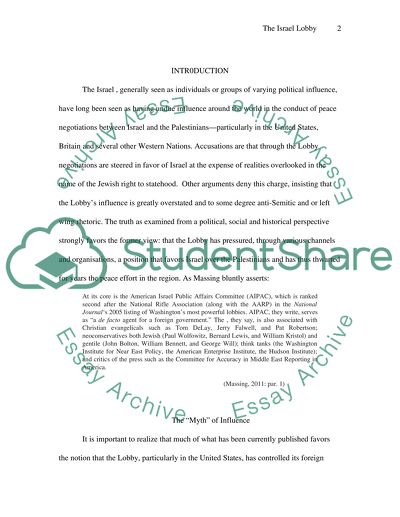Cite this document
(“Analyse the role of the Israel lobby in the conflict between Israel Essay”, n.d.)
Retrieved from https://studentshare.org/environmental-studies/1413428-analyse-the-role-of-the-israel-lobby-in-the
Retrieved from https://studentshare.org/environmental-studies/1413428-analyse-the-role-of-the-israel-lobby-in-the
(Analyse the Role of the Israel Lobby in the Conflict Between Israel Essay)
https://studentshare.org/environmental-studies/1413428-analyse-the-role-of-the-israel-lobby-in-the.
https://studentshare.org/environmental-studies/1413428-analyse-the-role-of-the-israel-lobby-in-the.
“Analyse the Role of the Israel Lobby in the Conflict Between Israel Essay”, n.d. https://studentshare.org/environmental-studies/1413428-analyse-the-role-of-the-israel-lobby-in-the.


